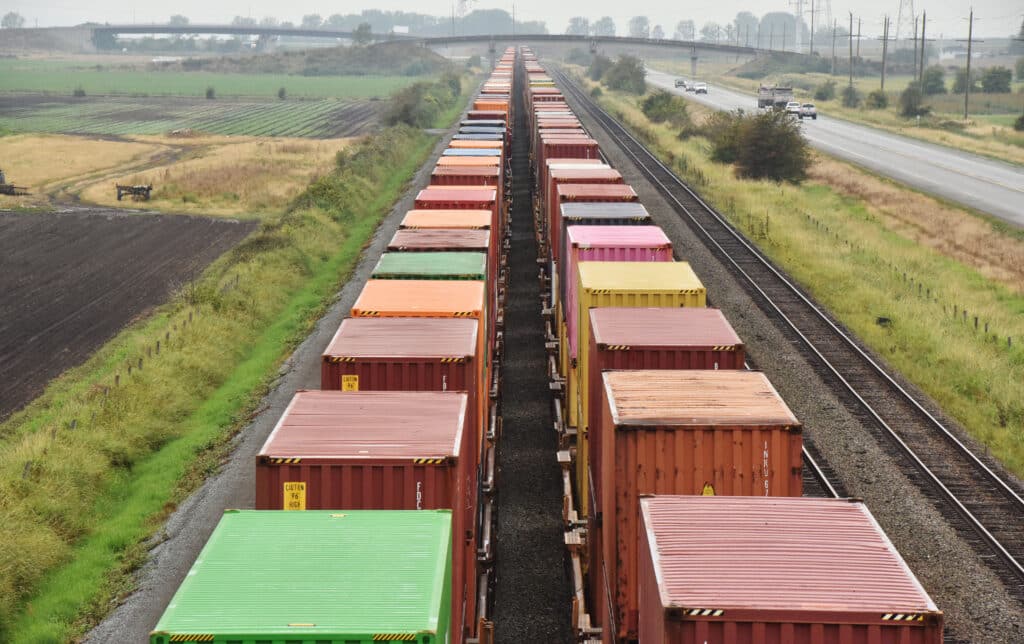
Railcars with containers sit idle near the Roberts bank Super Port after a strike by railway workers on August 23, 2024, in Delta, British Columbia, Canada. – Freight rail operations resumed across Canada on August 22, after federal intervention to end a disruption triggered by labor disputes at the country’s two main operators, Canadian National Railway and Canadian Pacific Kansas City. Canadian Labor Minister Steven MacKinnon ordered current collective agreements extended and “operations on both railways to resume forthwith.” (Photo by Don MacKinnon / AFP)
Ottawa, Canada — Canada’s industrial relations board on Saturday ordered striking rail workers back on the job and imposed binding arbitration to settle labor disputes at two major freight carriers that threatened to upend the North American economy.
Stoppages began Thursday morning at both Canadian National Railway (CN) and Canadian Pacific Kansas City (CPKC), locking out nearly 10,000 workers with the Teamsters union.
Prime Minister Justin Trudeau’s government moved quickly to end the strikes, sending the disputes to the Canada Industrial Relations Board (CIRB) to be resolved by an arbitrator.
The board ordered strikes to end by Monday.
READ: Canada government steps in to end crippling freight rail shutdown
The Teamsters union said it would comply with the ruling but that it would also file an appeal in federal court.
Paul Boucher, president of the Teamsters Canada Rail Conference, said the decision “sets a dangerous precedent” by signaling that “large companies need only stop their operations for a few hours, inflict short-term economic pain, and the federal government will step in to break a union.”
“The rights of Canadian workers have been significantly diminished today,” he added.
CN said it was “disappointed an agreement could not be reached at the bargaining table,” but welcomed the independent tribunal’s order that “effectively ends the unpredictability that has been negatively impacting supply chains for months.”
CN’s employees had already returned to work Friday morning, but hours later the union filed a strike notice for Monday — which is now voided.
CPKC’s workers, meanwhile, had initially refused to resume operations as they contested the constitutionality of the government intervention.
Labour Minister Steven MacKinnon said on X that he expected the “rail companies and employees will resume operations at the earliest opportunity.”
Canada is the world’s second-largest country by area, and relies heavily on rail transport.
CN and CPKC tracks stretch from the Atlantic to the Pacific and south into the United States, carrying an estimated Can$1 billion (US$730 million) worth of goods daily.
This was the first time Canada faced simultaneous work stoppages at the two rail companies, which in the past have negotiated labor deals in alternate years.
Business groups and farmers had warned of costly disruptions to the G7 economy, with fallout also for the United States with which Canada shares deeply integrated supply chains.
The disputes centered around workers’ concerns over long hours and fatigue, leading to dangerous working conditions.
The companies and the union have blamed each other for the work stoppage that followed nine months of fruitless negotiations.
In asking the CIRB for binding arbitration, MacKinnon said on Friday, “Canada’s economy cannot wait for an agreement that has been delayed for a very long time and when there is a fundamental disagreement between the parties.”